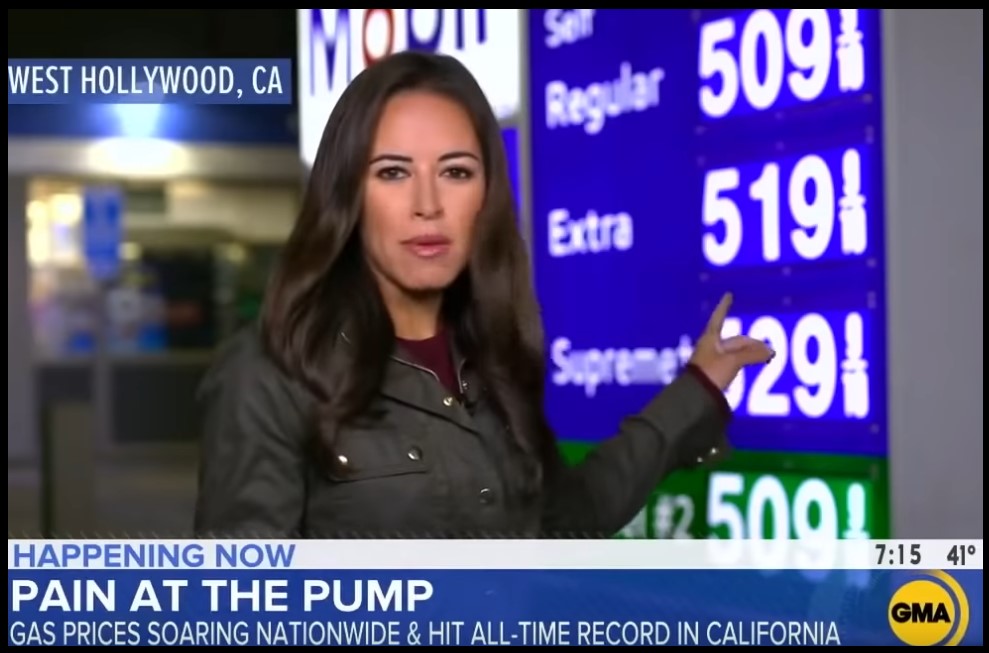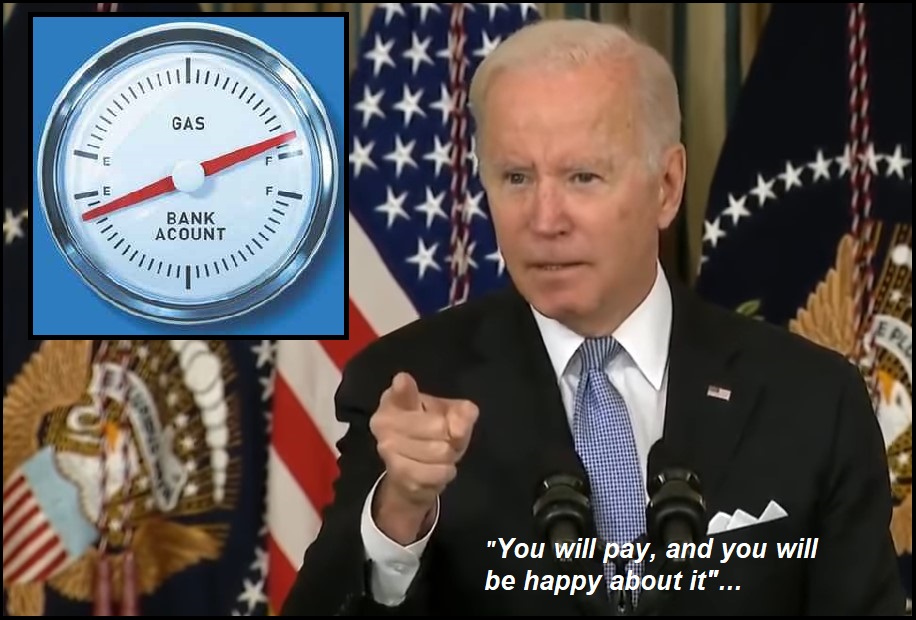Analysts Predict $100 Barrel Crude By End of This Year, Biden Team Really Needs Omicron
JoeBamaNomics, Oil and Energy Analysts Indicate $100 Barrel Crude Costs By End of This Year, The Biden Team Really Need Omicron
JP Morgan is emphasizing that U.S. energy policy is likely to end up with $150-$200 per barrel oil costs in next year ($10/gal gasoline). [LINK] Whether that dire prediction comes true is anyone’s guess. However, consensus review makes nearing $100/barrel costs by the end of this year just as unnerving. ($6/gal gasoline). That outcome is the centerpiece for why Biden needs the Omicron variant to impact the demand side urgently.
 New York – […] “We believe the evolution of coal prices might reflect supply, demand, cost of capital and energy transitioning issues for all fossil fuels, and it would certainly be possible that oil prices will follow the same pattern (inflation adjusted for oil, that would be in a $150-200/bbl range),” wrote a team of JPMorgan Chase & Co. strategists led by Marko Kolanovic. (read more)
New York – […] “We believe the evolution of coal prices might reflect supply, demand, cost of capital and energy transitioning issues for all fossil fuels, and it would certainly be possible that oil prices will follow the same pattern (inflation adjusted for oil, that would be in a $150-200/bbl range),” wrote a team of JPMorgan Chase & Co. strategists led by Marko Kolanovic. (read more)
This analysis essentially aligns with CTH outlooks and complements what Allianz Group chief economic advisor, Mohamed El-Erian, was saying yesterday [LINK] The Biden energy policy is specifically to blame for the current price increases across the entire energy sector.
All of Biden energy policy, and all of Biden spending around the Build Back Better agenda, is designed to take us from where we are now into some distant place where fossil fuels are not the energy mechanism; that’s the Green New Deal component of this. However, there is no policy for their transition – they stopped all current energy policy around oil and coal.
Biden halted pipelines, cancelled oil and gas leases, blocked expanded refinery capacity and regulated the entire U.S. oil industry into a place of diminished capacity. That is why energy prices have, as Obama promised, “necessarily skyrocketed.” And, we ain’t seen nothing yet. Depending on how cold it is this winter, you can expect natural gas and home heating oil to double in the next few months.
The near horizon looks pretty clear. Gasoline will keep rising fast and will cost $6 to $7/gal before next spring. There is no way under current Joe Biden policy to avoid this, unless he was to completely abandon his energy policy; that’s not likely. The climate change ideologues, academics and far-left communists behind the Biden policy are not likely to see the catastrophic economic damage as a bad thing, instead they will likely say it’s the new normal.
With that level of supply side economic chaos seemingly unavoidable, the only way for Biden to try and mitigate political damage is an attempt to halt the demand side. That’s why the administration needs Omicron.
It is more important for our government to use Omicron than all other governments because we are the spending and ideological center. That is why we are seeing a much bigger emphasis upon the fear of Omicron by our government; and that is why the descending levels of variant emphasis/fear fall in line depending on how closely other nations are aligned as allies.
Meanwhile… China, Iran and Russia (adversaries on an ideological level) know what is happening, and to the extent they can drive U.S. inflation even higher, they will. Our adversaries know how to use Biden’s policy to make massive inflation hurt the U.S. disproportionately. This is why OPEC is giving Biden the middle finger on his ‘request’ to increase oil production, and this is why China is now triggering shipping quarantines. (more)
Again, as repeated previously, our window to prepare for a massive jump in inflation is slowly closing. We are down to around 60 days, and then things will get really ugly. The people behind Joe Biden know this. Omicron is a tool they are attempting to use to moderate the speed of impact within the inflation window.
WASHINGTON – […] The main driver behind oil prices is supply and demand. And while the Omicron COVID-19 variant put a dent into oil prices on Friday, with investors fearing that potential country lockdowns would reduce travel and therefore lower demand for oil, JPMorgan viewed that price move as an overreaction.
“We believe the market may overestimate the impacts of the recent emergence of the Omicron variant of COVID-19 on oil prices during the US holiday period,” JPMorgan said in a Monday note, inferring that there will be little to no slowdown in holiday travels even as the Omicron variant spreads.
[…] With demand for oil likely to remain steady, supply will remain the key driver behind oil prices for years to come. And with OPEC+ “being firmly in the driver’s seat for oil prices,” JPMorgan thinks Brent will hit $120/bl in 2022, and could even overshoot to $150/bl in 2023, representing potential upside of as much as 100% from current levels. (read more)





Post a Comment